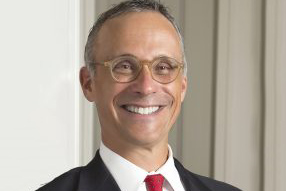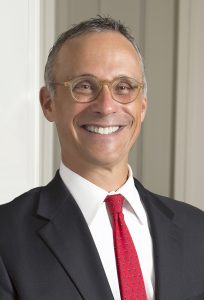President Roth Examines Campus Intellectual Diversity in an Age of Polarization


Writing in Inside Higher Ed, President Michael S. Roth responds to a recent Pew Research Center survey showing a sharp partisan divide in how Americans view higher education. While 58 percent of Republicans and right-leaning independents say colleges are having a negative impact on “the way things are going in the country,” 72 percent of Democrats and left-leaning independents see colleges as positive.
Roth writes, “Colleges and universities have long been the screens upon which groups project their own fears and anxieties. Older people wonder what the next generation is coming to, or worry that their children are having their lives distorted by a professoriate not part of their ‘real world.’ In the past two years, the fantasy of political correctness on college campuses has been a catch-all for a range of people angry about the world, especially those concerned about their status in our age of rapidly growing inequality. The PC campus bogeyman has an important function—it pumps up the myth that our biggest problems stem from a lack of tolerance for ideas friendly to the status quo.”
Yet, he adds, “At the same time, those attacked as PC shouldn’t take the bait and content themselves with labeling anyone who attacks them as racist. Those who point out the dangers of big government, emphasize the needs of national security in an age of terrorism, extol the virtues of family and religion, or defend free speech deserve intellectual engagement—not insult and irony. Those who support a progressive campus culture make a big mistake if they think they are protecting that culture by insulating it from ideas that come from conservative, libertarian and religious traditions.
“Demonizing people because they have ideas different from your own has always been a temptation, and lately it has become a national contagion. College campuses are not at all immune from it, but this malady is fatal for liberal education. Many people are so accustomed to curated information—be it from social media feeds or just from one’s choice of cable news—that they have lost the ability to respond thoughtfully to points of view different from their own.”
Roth writes that campus leaders have a responsibility to “highlight and enhance the ways that students and faculty members consider alternative perspectives on culture and society; we must promote vigorous debate that doesn’t degenerate into personal attack.”

